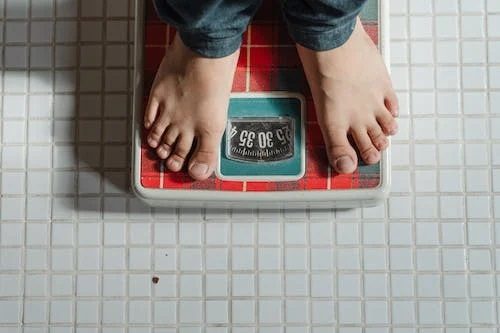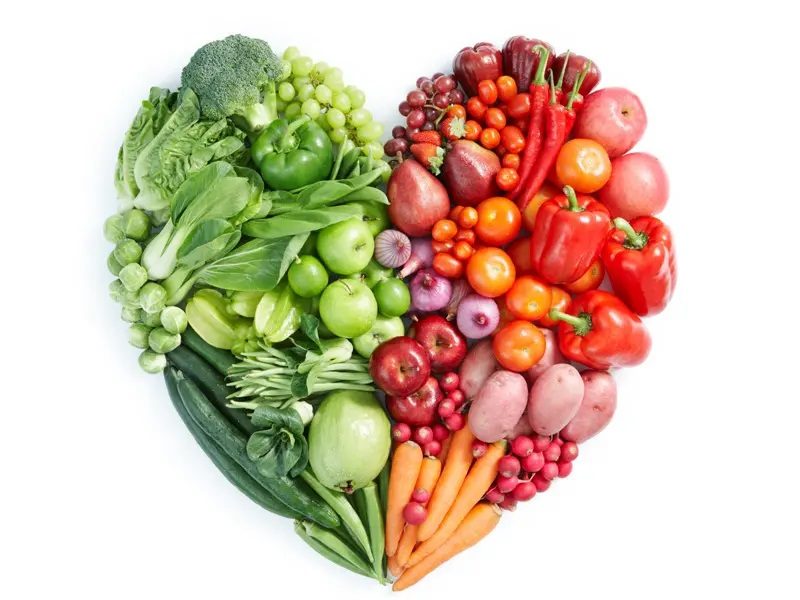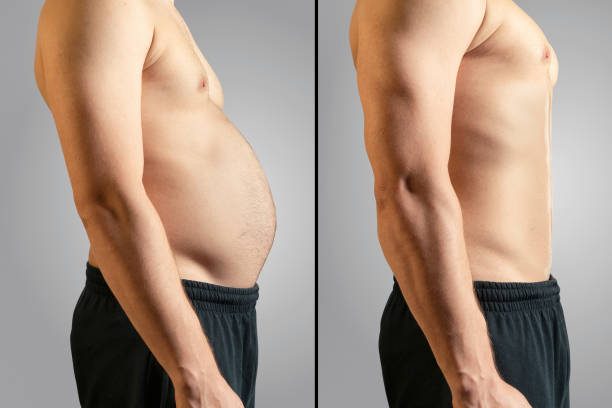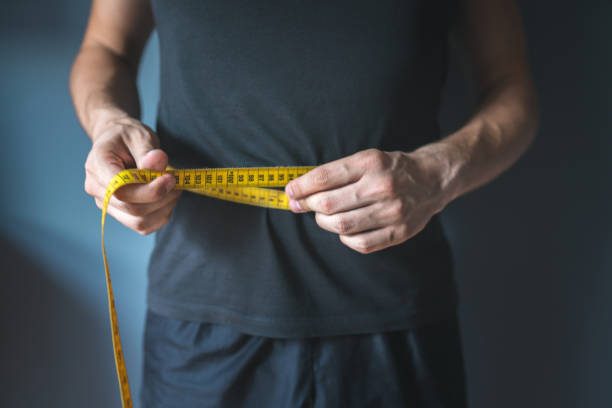Do you want to lose weight without losing your health? Continue reading this article to learn how to lose weight and discover also what you can change in your life to become fitter and healthier.
Weight Loss 101
We all have different stomachs and eating styles so some forms of dieting may appeal to you and your body’s health more than others. You can lose weight by following a low carbohydrate diet or a diet which focus on using whole foods rather than processed foods.
The doctors recommend a steady weight loss of one to two pounds per week for long-term weight management to be manageable and effective.
Medical research has shown that you can lose weight by eating healthily, selecting the right carbs, and exercising regularly. An effective diet should lower your appetite and hunger whilst you remain happy and healthy. There should be a steady weight loss in the mid and long term and the right diet for you will improve your metabolism over time.

Rapid weight loss is often not sustainable. Always focus on the longer-term health benefits. Adopt the habits and routines that you can stick to which improve your health and lead to lasting weight loss.
Watch Your Carbohydrates
You can lose weight quickly by lowering the amount of carbohydrates, starches, and sugars that you eat. Your hunger levels go down when you lower the quantity of refined carbs you eat and replace them with whole grains. This means that you end up eating fewer calories and you will burn some of your stored fat for energy.
By eating more complex carbohydrates such as whole grains and by reducing your calories, your body takes longer to digest your food. This means you feel fuller and less hungry. Also, a very low carbohydrate diet helps older people to lose weight. It can be tricky to follow a low carb diet. This can result in yo-yo dieting and putting a lot of weight back on.
Other reduced calorie diets may lead to weight loss and be easier to maintain in the long term. Lowering your refined carbohydrates can help to lower your insulin levels, reduce your appetite, and help you to lose weight.
Each meal should include a variety of foods. A balanced meal should include vegetables, a source of protein and healthy fat, and a small amount of complex carbohydrates.
Eat Your Veggies
Don’t be afraid to bulk up your meal and fill your stomach with leafy green vegetables. Vegetables are full of nutrients, and you can eat a lot of them with only a minimal increase in carbs and calories. Some of the vegetables to eat more of are spinach, tomatoes, cabbage, kale, broccoli, lettuce, cucumber, cauliflower, and peppers.

Some vegetables including corn, potatoes, and winter squash contain more carbohydrates. These vegetables contain complex carbs and fibre but are best eaten less frequently with reduced portions.
Eat Healthy Proteins
Eating a recommended amount of protein will help you preserve your health and muscle mass. This is a key when losing weight. Eating enough protein lowers cardiometabolic risk factors, appetite, and body weight.
Men require around 50 to 100 grams of protein per day. Women need between 45 and 75 grams of protein per day. Diets containing protein will help you reduce your cravings. Also, you will feel full and satisfied for longer so you will want to snack less.
Healthy protein sources include eggs, fish and seafood including salmon, trout, sardines, and shrimp. They are also in lean meats including chicken, pork, beef, and lamb, and vegan proteins such as beans, tempeh, legumes, tofu, and quinoa.
Some Fats are Good for You
Your body will always need healthy fats such as olive and avocado oils as well as nuts and seeds. Other fats such as coconut oil and butter are highly saturated. These should be used sparingly in any diet.
Every meal you eat should have proteins, vegetables, healthy fats, and complex carbohydrates. Minimise unhealthy fats and avoid processed foods that have a high fat and salt content.
Exercise Your Body
Exercise can help you lose weight more quickly. When exercising with weights you will burn more calories and keep your metabolism going. It helps to try strength training three to four times a week.
You can use a personal trainer or fitness coach to help you get started. Always inform your doctor about any changes to your exercise routine, especially if you have any medical conditions.

Cardiovascular exercise includes walking, running, swimming, and cycling. These types of exercise will also tone your muscles, exercise your lungs and heart, and they make you sweat which helps eliminate toxins from your body. Strength and cardio exercises when used together can help with your weight loss. They also give you a good health and fitness tune up.
Portion Control & Calorie Counting
If you opt for a low carbohydrate eating plan, you will not need to count your calories. The aim is to keep your carbohydrate intake low and eat more vegetables, healthy fats, and protein.
Keep track of your calories if you are not losing weight or are on a calorie-controlled diet. You may want to use a calorie counter app or an online calculator to estimate your calorie needs.
Be aware that eating too few calories may endanger your health and jeopardise your chance of losing weight. Lower your calories by a healthy amount which you can maintain long term. Always speak to your doctor or dietician if you are unsure. Counting your calories may help if you are following a calorie eating plan or cannot lose weight with other methods.
What About Fasting?
Fasting can be used as a weight loss tool well as dieting and exercise. Fasting is when you totally stop eating for an agreed time. Fasting often lasts from 12 to 24 hours. However, some types of fasting continue for days. You may drink water only or have a small amount of food during your period of fasting.
Fasting is a feature of many religions. Muslims will fast from the crack of dawn to sunset for every day during Ramadan for a month before the Eid celebration. In Ancient Greece, Hippocrates thought the fasting helps the body heal itself. There is a lot of truth in this provided you have a healthy balanced diet and exercise regime when not fasting and you don’t fast for too long.
Some types of fasting can help to lower and stabilize your blood pressure, glucose levels, cholesterol, and your sensitivity to insulin. Fasting may sound hardcore to you and those who fast may really feel it. This is especially so at the beginning of a fast.

Eat normally without stuffing yourself with too much food when not fasting. Medical studies have shown that your health changes for the better when you fast. Remember to eat enough fruit, vegetables, and whole grains, around your fast.
You might. Still, you should try to eat a healthy amount of food and not stuff yourself after a fast. Quality still counts. People who fast will tend to have easier weight loss, reduced blood pressure, higher insulin sensitivity, and better appetite control.
Intermittent fasting is an off-and-on type of fasting which can be very effective as part of a weight loss strategy. There are three types of intermittent fasting that can lose your weight. These are time-restricted feeding, fasting an alternate days and modified fasting. Alternate day fasting is hard to keep going over the long term, and most other types of fasting become easier over time.
Diabetes and Weight Loss
If you are overweight or obese, then losing just 5% of your body weight will boost your health. Your blood sugar levels will improve, and your blood pressure will lower. Also, your risk of heart disease lowers, and you may need to take less medication.
There are four different diets for weight loss and extra nutrition that can help people with both type 1 and type 2 diabetes. These diets are:
1. Vegan and vegetarian diet
2. Low fat and high protein diets
3. Mediterranean diet which includes a lot of nuts, vegetables, and healthy fats
4. The DASH diet (dietary approaches to stop hypertension) which is high in vegetables, fruits, and grains whilst being low in sugar, fat, and sodium salt
Medical science shows that fasting may help with diabetes or prediabetes. Fasting can assist with weight loss as well as improved control of blood sugar and insulin sensitivity.
Remember that extreme diets, including fasting, can be dangerous so always check with your medical specialist before embarking on a specific diet, especially if you are taking prescribed medication for diabetes.
Ten Steps to Losing Weight

1. Eat a breakfast that is packed with proteins. A high protein breakfast can reduce your cravings and calorie intake
2. Minimise sugar products including sweet drinks and fruit juice. Sugar carries empty calories which can hamper weight loss and harm your body
3. Drink water throughout the day and aim to have at least 2 to 3 litres per day. Drink more water on a hot summer day
4. Select foods which are weight-loss-friendly. Some foods are better for weight loss than others. Also watch the times you eat and try not to eat within 2 or 3 hours before bed or exercise
5. Eat more fibre from fruit, vegetables, whole grains, nuts, and seeds
6. Drink two or three cups coffee, tea, or healthy caffeine drinks each day. Caffeine helps to boost your metabolism and remember to add as little sugar as possible to these drinks
7. For your diet use whole foods which are nutrient rich. They fill you up more and are less likely to cause you to overeat
8. Always eat slowly. Your stomach will feel fuller, and this increases your weight-reducing hormones. Eating rapidly often leads to weight gain over time
9. Sleep is important for many reasons. Poor sleep is a massive risk factor for gaining weight. Also, sleeping right after eating does not give your stomach time to digest and this will give you tummy and bowl problems as well as weight gain
10. Try to reduce stress and set time aside for exercise, meditation, and energy healing
How Much Weight Will I Lose?
Within the first week of a new diet, you may lose more weight than in subsequent weeks. In the first week you lose some body fat and water content. Over a period of weeks or months, weight loss will be slower and more consistent.
Check with your doctor as to how much weight as safe to lose. As a rule of thumb, losing one or two pounds a week is safest. Speak to your doctor about a safe level of calorie reduction especially if you intend to lose weight more quickly.

A balanced diet with complex carbohydrates is the most sustainable. A low carbohydrate diet can also improve your health. You blood pressure will significantly improve, and the bad cholesterol reduces too. Also, your blood sugar levels will drastically reduce, and triglycerides will also go down.
The ageing process will slow down by reducing calories and increasing whole foods as your metabolism improves.
Discover tasty healthy recipes that will help you lose weight on the nutrition blog.
Lose weight and gain energy and love with the meditations in the Star Magic meditation library.
Join infinity free for 7 days and you will access your ultimate consciousness toolkit and much more.
Amplify your life with our next Star Magic facilitator training and become an extraordinarily powerful healer.
Check out our YouTube channel for more Star Magic wisdom and healing.